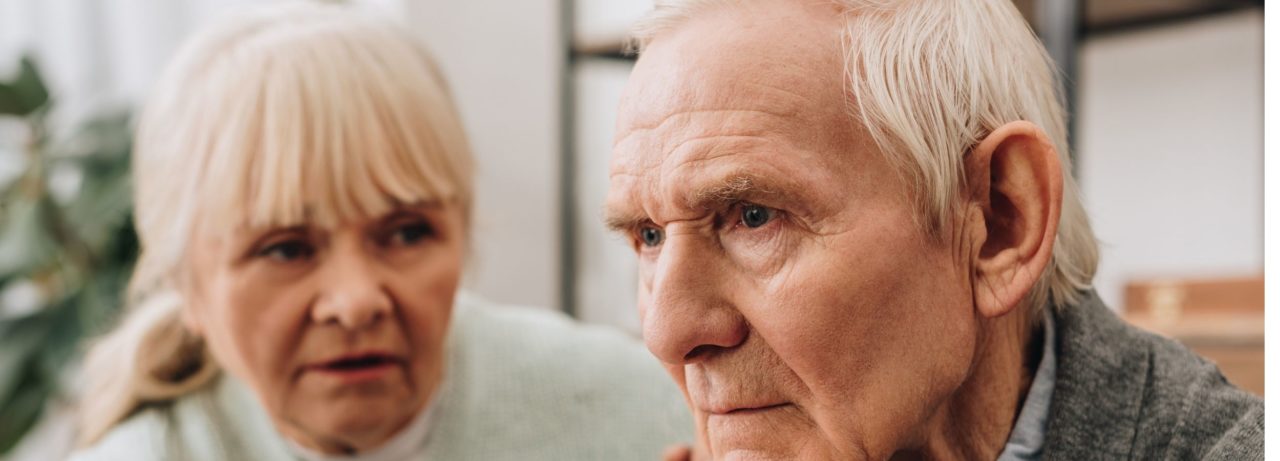Share
Watching a loved one gradually lose his or her memory is heartbreaking. Although growing older is a privilege we want our loved ones to experience, being confronted with dementia is challenging for the loved one and the family. This is an added challenge for family members that take on the role of caregiver. Being a caregiver for a loved one who is suffering from dementia can be both physically and emotionally draining.
Episodes of rage and paranoia can punctuate the gradual decline of cognitive function. The key to being a great source of support for your loved one is to be patient. Also, remember that kindness and regularly reassuring your loved one of your unwavering love is a great way to provide emotional stability.
Tips for Helping a Loved One with Dementia
When talking to a loved one with dementia, express yourself in short, precise sentences. This makes it much easier to understand. Other communication pointers include moderating the tone and pitch of your voice, especially when delivering less-than-positive news. The idea is not to subject them to unnecessary panic, which may aggravate them.
Your loved one may often struggle to make decisions or to communicate clearly, especially when your loved one becomes agitated.
Here are a few tips on what not to do when handling a loved one’s memory loss.
- Do not get frustrated when your loved one says or does something unpleasant.
- Do not take any unusual behavior personally and remember that your loved one does not mean to act out.
- Do not get caught up in arguments with your loved one. Dementia has been associated with increasingly unpredictable mood changes and bursts of rage. Arguing with a loved one suffering from dementia only serves to escalate the problem. Try to de-escalate and create a calm environment.
- Do not constantly correct your loved one. His or her recollection of events and memories may differ from what happened. Dementia patients may be adamant in what they believe to be memories. Engage them in light-hearted, humorous conversations.
In addition to managing healthy communication, living with a loved one with dementia can present many safety concerns. The decline in cognitive functions puts people with dementia at risk of getting hurt or hurting others. Avoid leaving doors unlocked or letting your loved one go outside unattended.
As your loved one continues to be affected by the disease, it is important to review his or her care plan to see if assistance is needed with daily living activities.
Caring Home Care has a list of certified personal care assistants that can provide help with:
- Bathing
- Grooming
- Maintaining a safe and clean environment
- Meal preparation
- Toileting
- Escorting to and from appointments
- Providing a friendly face and mental support
To find out today if your loved one qualifies for caregiver services through their long-term care insurance, click here.
In the world of healthcare and home care, the roles of caregivers and nurses are often confused, yet they are distinct in their responsibilities, training, and the nature of their work. This article explores the five main differences between caregivers and nurses, shedding light on their unique contributions to patient care. Educational and Training Requirements […]
Falls among the elderly can lead to significant health issues, including injuries and reduced mobility. Home care aides and Certified Nursing Assistants (CNAs) play a critical role in preventing falls and ensuring the safety of elder patients. Here are five key ways they can help: Assessment and Personalized Care Planning: Home care professionals are trained […]
Selecting a live-in caregiver is a crucial decision for families and individuals who require ongoing, in-home care. This blog will provide insights and practical advice on choosing the right live-in caregiver, ensuring a good match, and how Caring Home Care can help facilitate this process. Understanding the Role of a Live-In Caregiver Live-in caregivers provide […]
Recovering from surgery can be a challenging process, especially in the comfort of one’s home. In-home caregivers play a pivotal role in this phase, providing essential support and care. This blog will dig into the importance of in-home caregivers in post-operative recovery, highlighting the specific services offered by Caring Home Care that cater to these […]
Need A Caregiver? Fill Out Form Below
With our competitive rates, we make receiving in-home care affordable regardless of whether you’re using your insurance or paying out of pocket.






